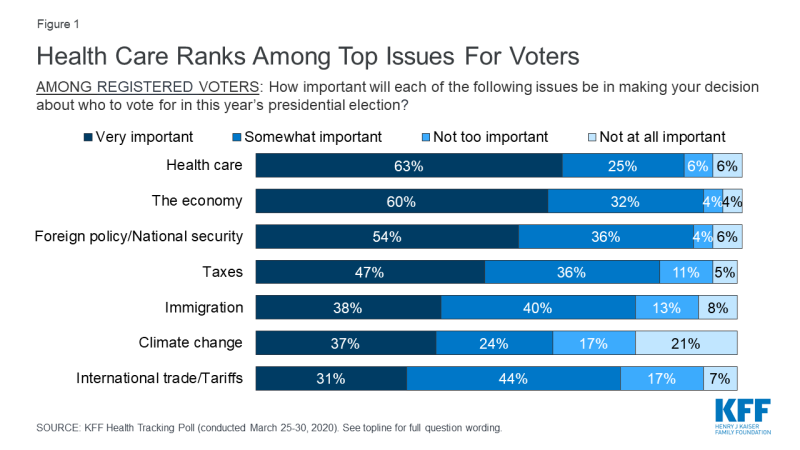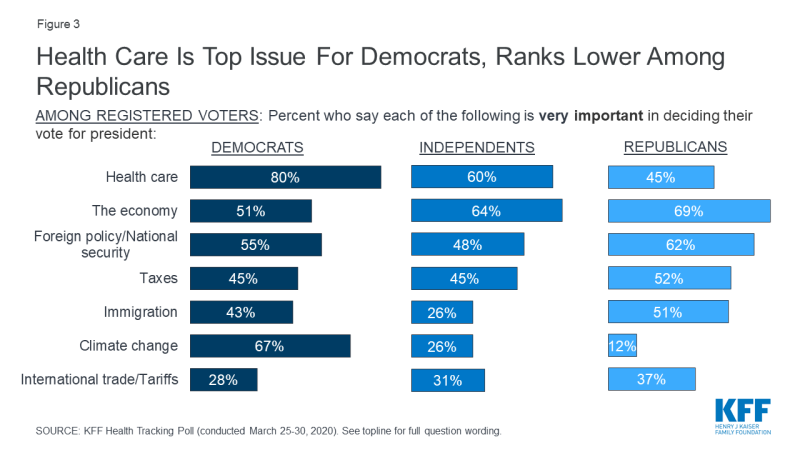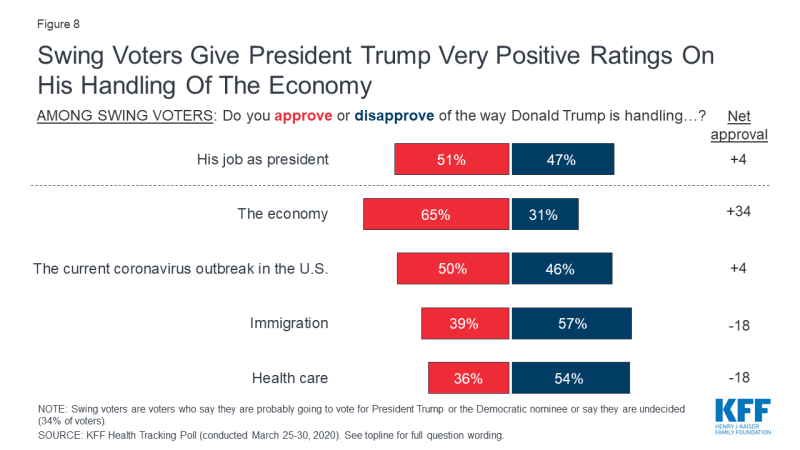KFF Health Tracking Poll - Early April 2020: The Impact Of Coronavirus On Life In America
Poll Findings: Coronavirus, 2020 Election and President Trump
- Throughout the 2020 Democratic primary, KFF has found health care at the top of voters’ minds and this month’s KFF Health Tracking Poll finds the current coronavirus outbreak may be solidifying health care and the economy as the two top issues in the 2020 election. At least six in ten voters say health care (63%) and the economy (60%) are “very important” in their 2020 vote choice, ahead of foreign policy or national security (54%), taxes (47%), immigration (38%), climate change (37%), and international trade and tariffs (31%).
- The latest KFF Health Tracking Poll analysis released on April 2nd found coronavirus affecting all aspects of life in America and this analysis finds it may also be influencing how voters think about their top two issues for the 2020 election. An increasing share of voters offer issues around increasing access to care as their top health care issue, and when asked what about the economy is important to their vote, about one in five voters overall offer responses related to unemployment or job security as their most important economic issue (18%) followed by 11% who offer responses explicitly about coronavirus’ impact on the economy.
- Nearly half (48%) of Americans now approve of the way President Trump is handling his job as president, up from 42% in February, prior to the increasing concerns of a U.S. coronavirus outbreak. President Trump gets the most positive ratings on his handling of the economy (57% approve compared to 38% who disapprove). The public is divided in his handling of the current coronavirus outbreak with similar shares approving (50%) as disapproving (47%) of his handling of this issue.
- Partisans are strongly divided in their assessment of President Trump’s job performance with large majorities of Republicans approving of his handling of every issue asked about while Democrats, on the other hand, largely disapprove of the way he is handling all issues.
- Health care and the economy are also important to a crucial group of voters who have not yet made up their minds about who they plan to vote for in November. “Swing voters” are voters who say they are “undecided” about who they plan to vote for or say they “probably” are going to vote for one candidate over another, but haven’t decided yet and represent 34% of all voters. The latest KFF Health Tracking Poll finds swing voters give President Trump positive ratings on his handling of the economy (+34 net approval) and current coronavirus outbreak (+4 net approval).
- In the midst of the coronavirus outbreak, the Early April KFF Health Tracking Poll finds a slight decline in public favorability of the 2010 Affordable Care Act with half of the public now viewing the law favorably, down from a high point of 55% in the February KFF Health Tracking Poll. Four in ten (39%) of the public hold unfavorable views of the law.
- There has been no significant movement since February in the public’s attitudes towards a national health plan, or Medicare-for-all in which all Americans would get their coverage from a single government plan (54% favor) or a government-administered health plan or public option, that would compete with private health insurance plans and be available to all Americans (69% favor). For more on this, check out the Public Opinion on National Health Plan slideshow.
Health Care in the 2020 Election
Throughout the 2020 Democratic primary, KFF has been tracking the role health care has been playing in the presidential election. For the past six months, health care has been among the top issues that voters wanted to hear about in the Democratic presidential debates as well as top of mind for Democratic primary voters as they made their voting decisions according to KFF analysis of AP VoteCast data. The latest KFF Health Tracking Poll finds health care and the economy are once again among the top issues with voters, with about six in ten voters saying each is “very important” in making their decisions about who to vote for in this year’s presidential election. Health care and the economy were also sharing that top spot back in February, and continue to top other issues such as foreign policy or national security (54%), taxes (47%), immigration (38%), climate change (37%), and international trade and tariffs (31%).
Health care and the economy are also the top issues among the crucial group of voters who have not yet made up their minds about who they plan to vote for in November. This group of voters, known as “swing voters,” are those who say they are “undecided” about who they plan to vote for or say they “probably” are going to vote for one candidate over another, but haven’t decided yet. Similarly to overall voters, the share of swing voters (34% of all voters) who say health care is “very important” to their vote has stayed steady since February (62% in February to 63% in the most recent poll), but the share of voters who say the economy is “very important” to their vote has decreased from 72% to 65% in the most recent KFF Tracking Poll.
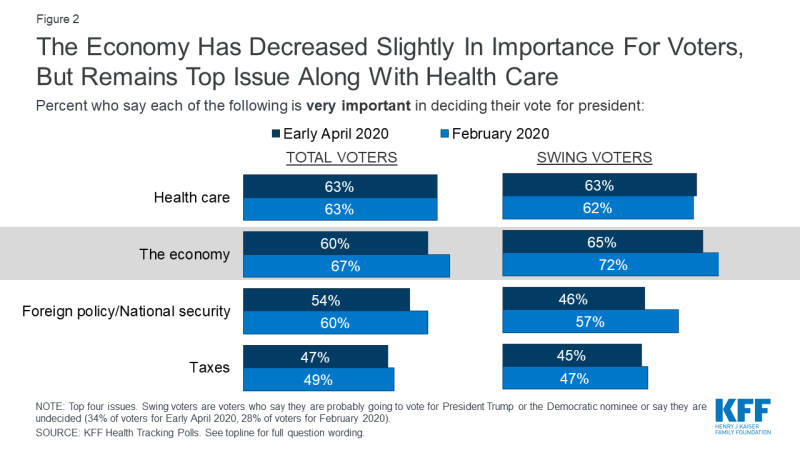
Figure 2: The Economy Has Decreased Slightly In Importance For Voters, But Remains Top Issue Along With Health Care
Health care is far and away the top issue for Democratic voters with eight in ten saying it is “very important” to their vote. It ranks among the top issues for independents along with the economy (60% and 64%, respectively), but ranks much lower for Republican voters at 45%, well behind the economy (69%), foreign policy and national security (62%), and more similarly to taxes (52%) and immigration (51%).
What specifically about Health care is important to your vote?
With health care and the economy dominating the 2020 presidential election so far, this month’s KFF Health Tracking Poll asks voters what specifically about both issues is important to their vote. Amid concerns about the health care system potentially being overwhelmed by the current coronavirus outbreak, when voters are asked to say in their own words what specifically about health care is important to their vote, the most common responses offered by voters are about increasing access (29%) followed closely by the cost of health care and health insurance (20%). This is a slight shift in health care priorities from February, in which one-fourth of voters offered responses related to health care costs (27%) and increasing access (25%). Fewer voters explicitly mention Medicare or senior concerns (4%), opposition to Medicare-for-all or single-payer (5%), support for Medicare-for-all (4%), or explicitly offer responses directly related to the coronavirus outbreak (2%).
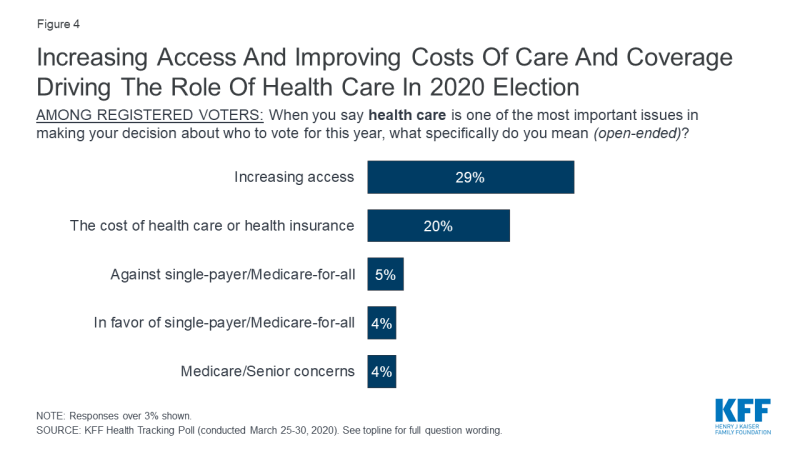
Figure 4: Increasing Access And Improving Costs Of Care And Coverage Driving The Role Of Health Care In 2020 Election
More than one-third of Democratic voters (36%) say increasing access to health care is the most important health care issue to their vote as do three in ten independent voters and a smaller share (13%) of Republican voters. One in five Democratic voters (21%), independent voters (21%), and Republican voters (21%) say the cost of health care and health insurance is the most important health care issue.
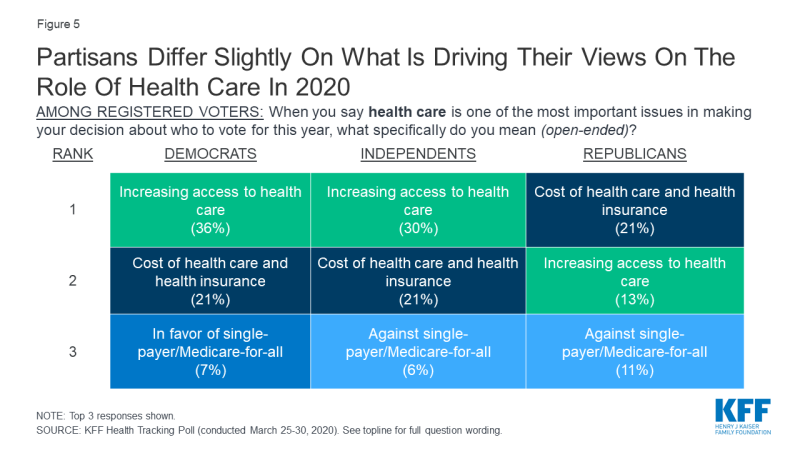
Figure 5: Partisans Differ Slightly On What Is Driving Their Views On The Role Of Health Care In 2020
What specifically about the economy is important to your vote?
When it comes to what about the economy is important to voters, many voters offer responses related to job security and unemployment (18%) as well as the impact of coronavirus on the U.S. economy (11%).
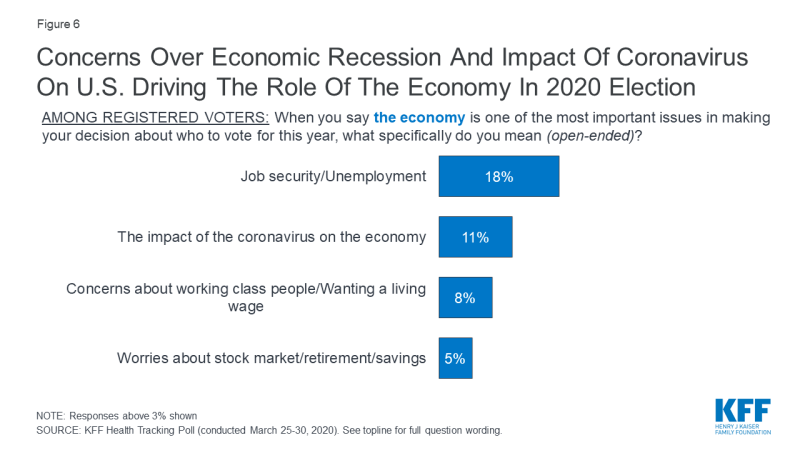
Figure 6: Concerns Over Economic Recession And Impact Of Coronavirus On U.S. Driving The Role Of The Economy In 2020 Election
President Trump’s Job Approval
Nearly half (48%) of Americans now approve of the way President Trump is handling his job as president, up from 42% in February, prior to the increasing concerns of a U.S. coronavirus outbreak. This is consistent with other national polling showing an uptick of President Trump’s job approval in recent weeks.
President Trump gets the most positive ratings on his handling of the economy with 57% of the public approving his job performance compared to 38% who disapprove. President Trump receives more mixed reviews of his handling of the current coronavirus outbreak with a similar shares approving (50%) as disapproving (47%) of his handling of this issue. President Trump receives more negative assessments in his handling of immigration (-11 percentage points net approval), and health care (-8 percentage points net approval).
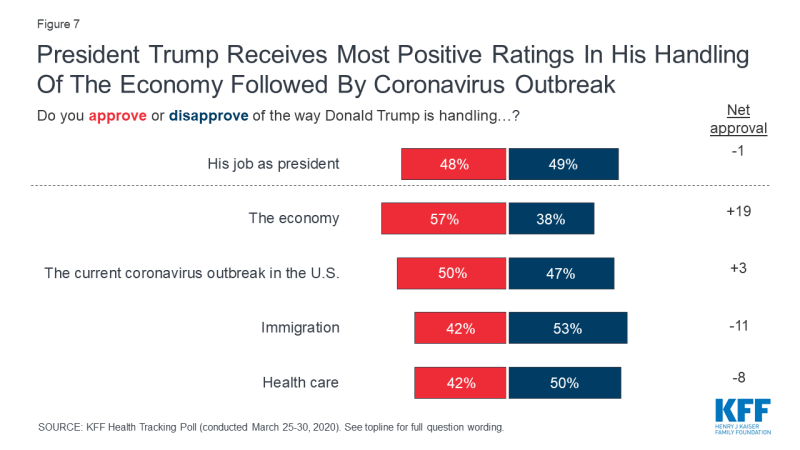
Figure 7: President Trump Receives Most Positive Ratings In His Handling Of The Economy Followed By Coronavirus Outbreak
Partisans are strongly divided in their assessment of President Trump’s job performance with about nine in ten Republicans approving of the way he is handling the economy (93%), his job as president (90%), immigration (88%), and the current coronavirus outbreak in the U.S. (87%). A slightly smaller share (79%) of Republicans approve of the way he is handling health care. Democrats, on the other hand, largely disapprove of the way he is handling immigration (87%), his job as president (86%), health care (81%), the current coronavirus outbreak (77%), and the economy (72%). Independents are divided in their assessments of his job performance overall ad response to the current coronavirus outbreak, but give him more positive than negative assessments of the way he is handling the economy (+29 net approval). President Trump receives more negative ratings from independents on his handling of immigration (-13 net approval) and health care (-9 net approval).
| Table 1: President Trump Job Approval By Party Identification | ||||
| Do you approve or disapprove of the way Donald Trump is handling…? | Party ID | |||
| Democrats | Independents | Republicans | ||
| His job as president | Approve | 13% | 51% | 90% |
| Disapprove | 86 | 47 | 9 | |
| The economy | Approve | 26 | 62 | 93 |
| Disapprove | 72 | 33 | 7 | |
| Health care | Approve | 14 | 41 | 79 |
| Disapprove | 81 | 50 | 14 | |
| Immigration | Approve | 10 | 41 | 88 |
| Disapprove | 87 | 54 | 9 | |
| The current coronavirus outbreak in the U.S. | Approve | 21 | 51 | 87 |
| Disapprove | 77 | 45 | 11 | |
Swing voters, that crucial group of voters who have not yet made up their minds about who to vote for President in November, give President Trump very positive ratings on his handling of the economy (+34 net approval) as well as net positive approval on the current coronavirus outbreak in the U.S. (+6 net approval) and his job overall (+4 net approval). He receives more negative ratings on his handling of the immigration (-18 net approval) and health care (-18 net approval) from this group.

